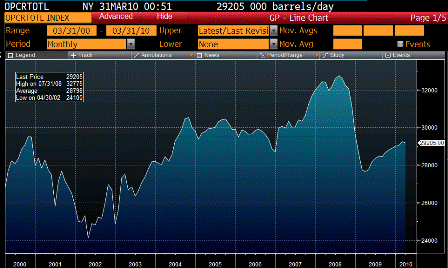The institutional structure puts the Eurozone in a very awkward position.
The higher deficits desired by the economy to restore non govt net financial assets at the same cause a deterioration in the credit worthiness of the member nations running the deficits, which seems to limit the process as these to two forces collide in a counterproductive, unstable and turbulent manner.
The higher member nation deficits also are a force that moves the euro lower which can continue until exports somehow resume via the foreign sector reducing its net financial euro assets as evidenced by a pickup in net euro zone exports. That process can be drawn out and problematic as well in a world where global politics is driven by export desires from all governments.
EU Headlines:
Trichet Expects Investors to ‘Recognize’ Greek Moves
Italian Consumer Prices Rose in March on Energy Costs
Europe Inflation Jumps More Than Economists Forecast
Euro Area Needs to Substantially Improve Governance, EU Says
German Unemployment Unexpectedly Declined in March
German Machine Orders Jumped 26% in February on Foreign Demand
France’s 2009 deficit hits record high 7.5 percent of GDP


